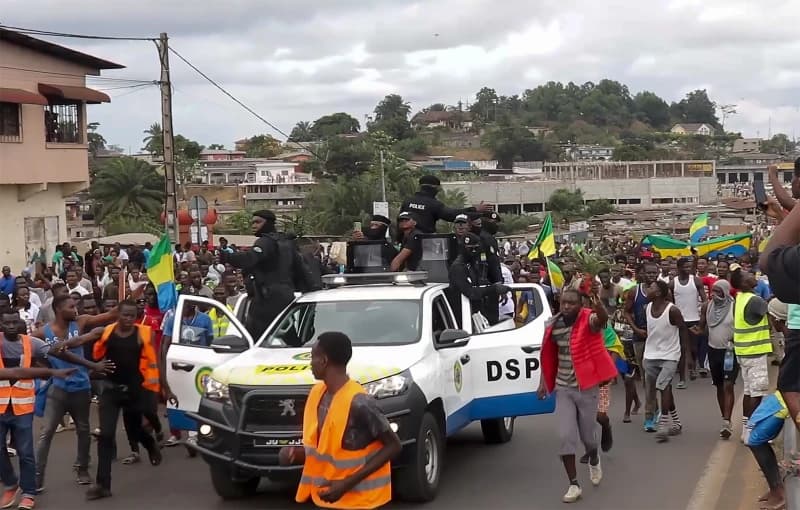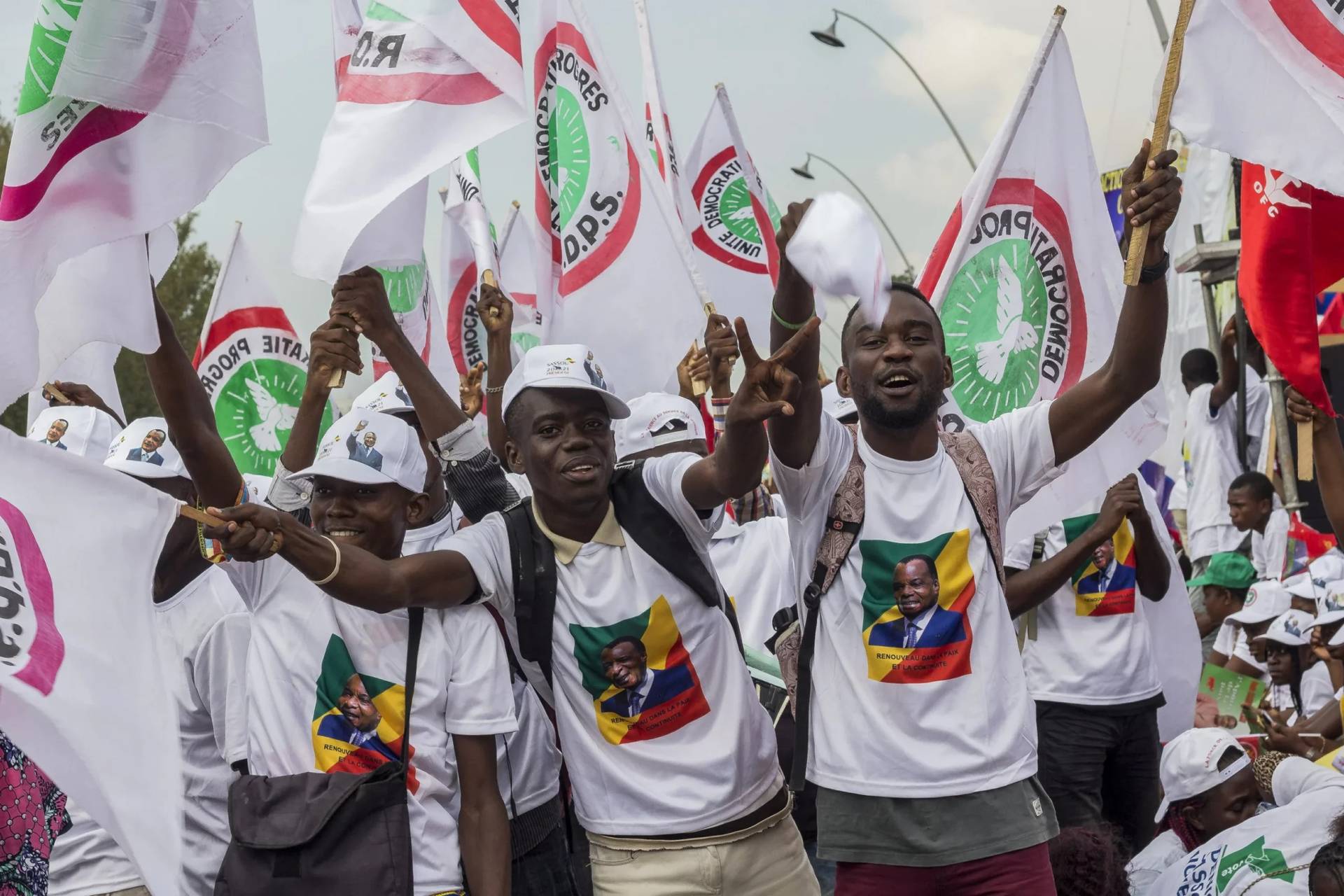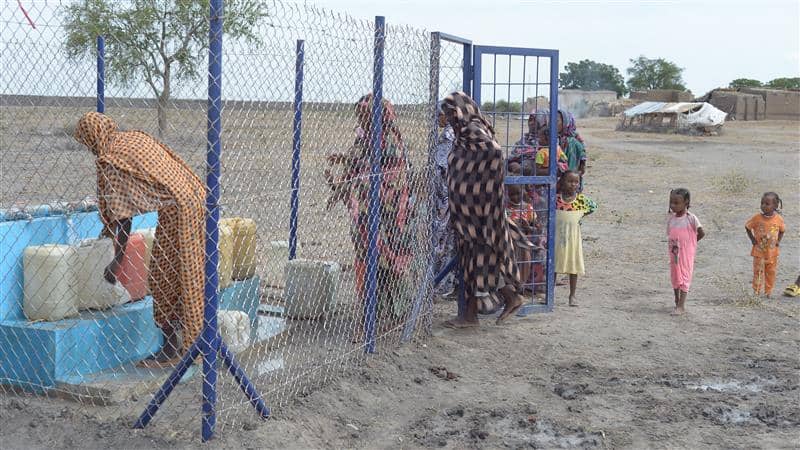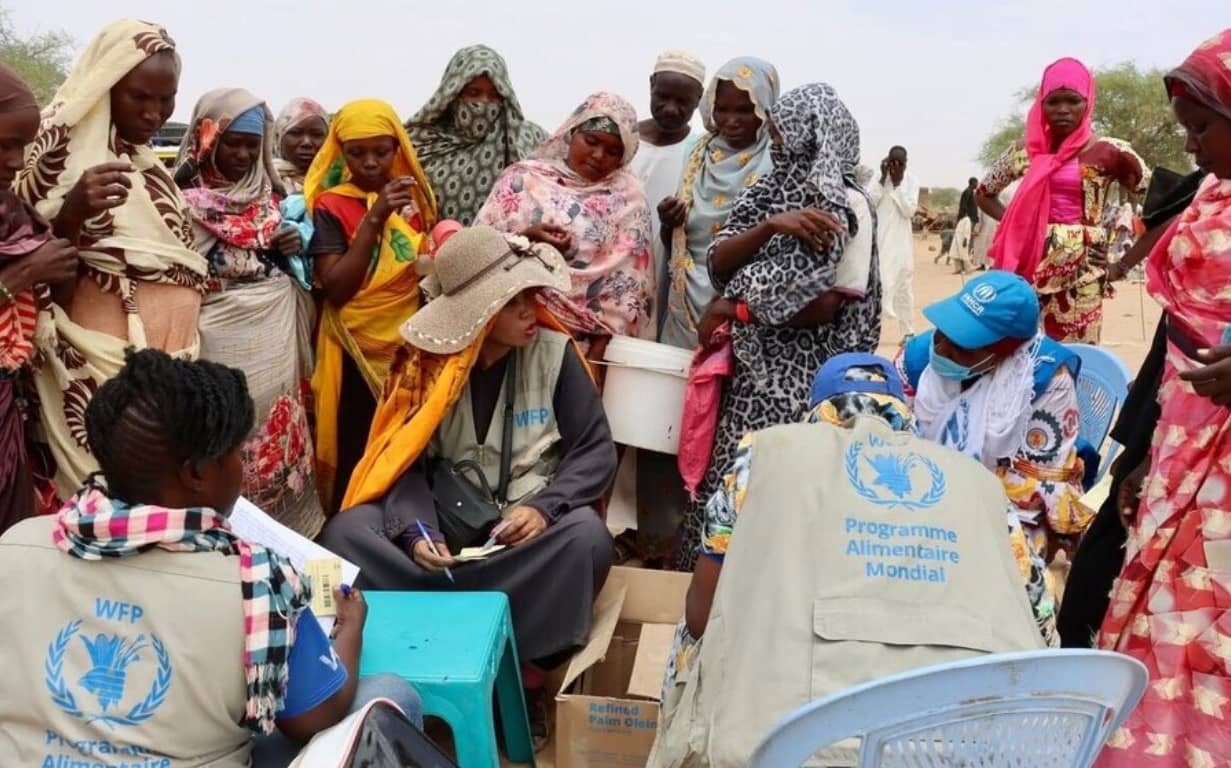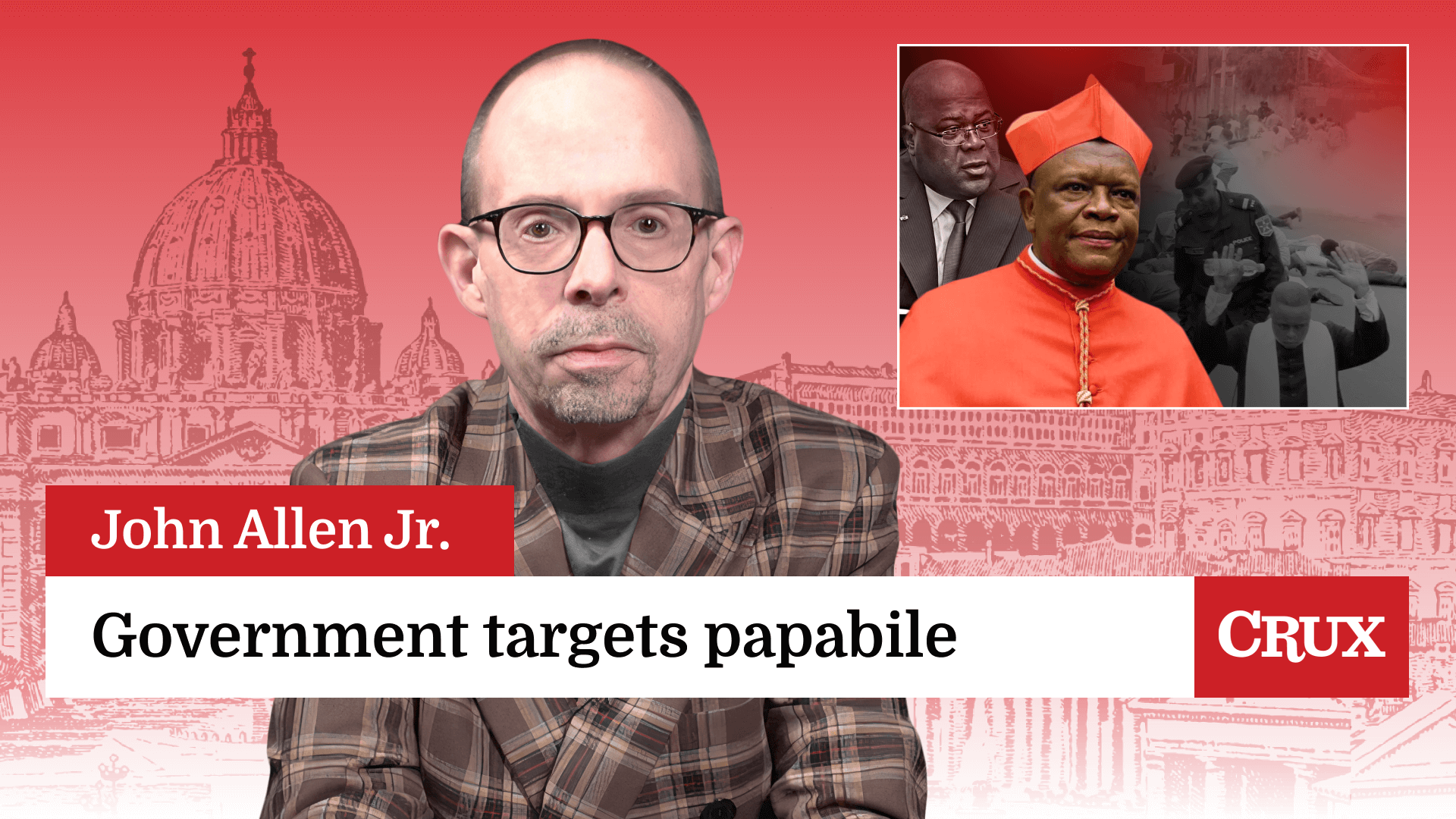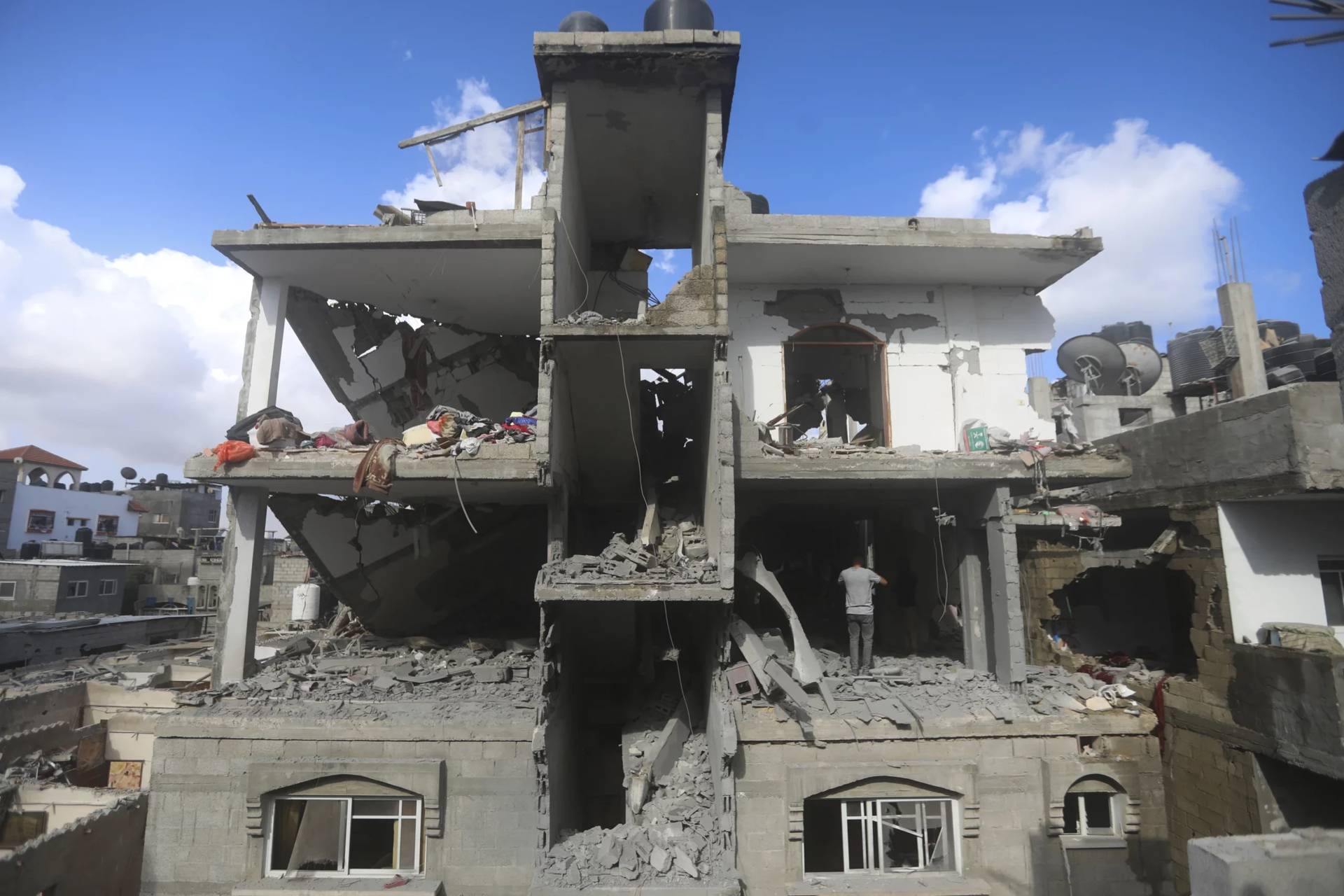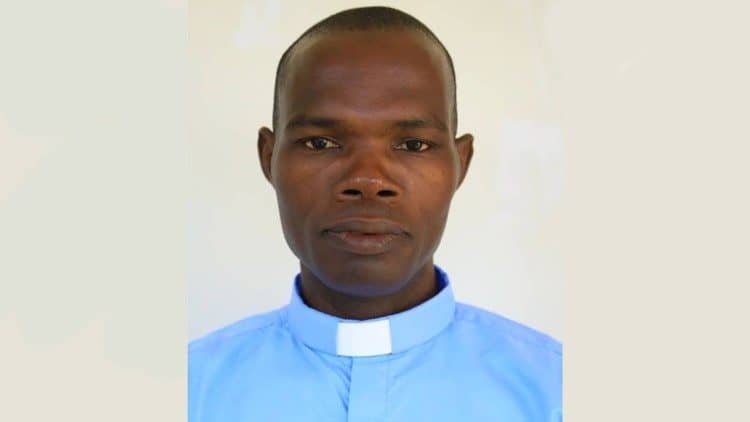YAOUNDÉ, Cameroon – As the central African nation of Gabon attempts to build a new future in the wake of a military coup last August, the centrality of religious faith in African cultures is reflected in the fact that the public face of the rebuilding project is a Catholic priest.
Speaking on state television April 24, Monsignor Jean-Bernard Asseko Mve said that a national dialogue drawing to close this month has produced significant results in terms of greater accountability in governance.
“It was sometimes stormy, but in the end we came to an agreement,” Asseko said.
“The participants were preoccupied with why Gabon has remained poor and underdeveloped despite the central African state’s abundance of natural and mineral wealth, fertile soils, forests, and petroleum resources,” he said.
The dialogue, which started April 2 and ends April 30, was organized by Gabon’s current military junta under General Brice Oligui Nguema. He took power in a coup on August 30,2023, after uprooting President Ali Bongo Ondimba, who had just won a controversial presidential election to extend his fourteen-year rule.
In an interview on Vatican Radio, Asseko described that military takeover as “a liberation coup,” because the Gabonese people “had reached a point where there was a lot of disappointment, a lot of tension and a lot of division in our nation, and Gabon was like a ship that was sinking. The Gabonese people greeted the military’s liberation coup with great fervor.”
He said the national dialogue is “part of the program drawn up by the military, now in power in Gabon, who felt the need to get Gabonese of all backgrounds, all social classes, intellectuals and politicians to sit around the same table, so that together we can draw up a new model for our nation.”
In terms of concrete results, Asseko said the Gabonese people overwhelmingly favor a more presidential system of government, consolidating executive powers and providing clearer leadership and decision-making.
Telesphore Ondo, a constitutional expert who chaired a “political system and institutions” sub-committee of the dialogue, noted that “Gabonese citizens have proposed that the executive should be fully assumed by the President of the Republic, [creating] a more presidential regime than we’ve had up to now.”
At the same time, however, Ondo said, people also want a reinforced parliament. Among the proposals is the need to reduce the number of political parties. This move, according to Ondo, aims to streamline the political landscape and enhance governance efficiency.
When it comes to the duration of a transitional government, Ondo voiced caution. While emphasizing the importance of respecting international commitments, he warned of unforeseen events that could disrupt the transition to democratic rule.
Assseko, a priest of the Oyem diocese. said that the about 600 participants have agreed that the term of the office of president should be limited to five years renewable once, and that the role of the central government should be curtailed in favor of a more decentralized governmental structure.
“The Gabonese people are waiting for the Gabonese constitution, which has been revised several times, to become once again a constitution that governs our living together, regardless of individuality,” the cleric said.
The delicate balance between honoring obligations and ensuring a smooth transition underscores the challenges faced by nations in flux. Gabon’s journey toward democracy remains closely watched by its citizens and the international community.
Delegates to the dialogue have also proposed ways of reducing unemployment and hardship in a country where 38 out of every 100 youths do not have employment, according to the World Bank.
Emmanuel Mve Mba, chairperson of a sub-commission on employment, said it put forth a crucial recommendation: To recruit the more than 180,000 youths who have applied for jobs since the military seized power on August 30, 2023. However, this recruitment should be based strictly on merit, rather than as political favors—a practice that has persisted since Gabon’s independence approximately 60 years ago.
The specific needs are clear. Gabon requires 7,000 teachers, 6,000 health workers, and 20,000 police and soldiers to maintain peace and stability in the central African nation. Mba’s call for merit-based recruitment aims to address both unemployment and the nation’s security concerns.
Gabriel Yomo Yebe, President of the Economic Commission, made the case for the country’s Minimum Guaranteed Wage to be raised to $245.46 to give people a sense of dignity. He underscored the need for entrepreneurship as a way out of unemployment and poverty.
“Do we have incubators in our universities? No! It is therefore critical that these incubators be created. Young people should gradually be turned into creators of enterprises; it is a precondition for youths to produce,” Yebe said.
“For a long time, the Gabonese economy was rent-based, promoting consumption without production. It was an economy by, and for, foreign actors. During this dialogue, we said it was necessary to stop this type of economy and carve a long-term economic vision for our country which will consist in mutating from a rent-based economy to a production economy that is diversified and that creates jobs,” he explained.
Asseko further emphasized that the first success of the dialogue lies in Gabon’s citizens transcending their differences and uniting for the well-being of their country and its close to 2.5 million inhabitants.
